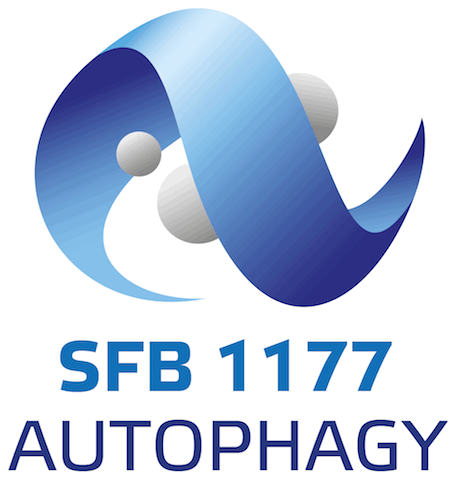E06
Autophagy regulates drug response in activated B cell-like diffuse large B cell lymphoma
This project focusses on the role of autophagy in regulating drug responsiveness in aggressive lymphomas. We showed that selective autophagy plays a key role in regulating the efficacy of Bruton’s tyrosine kinase (BTK) inhibitors in aggressive lymphomas. Now we will analyze the underlying molecular mechanisms to find ways to therapeutically exploit this pathway. We will (i) elucidate the exact autophagy pathway that influences drug response by a proteogenomic approach, (ii) investigate how relevant survival factors are targeted to autophagosomal degradation upon BTK inhibitor treatment, and (iii) identify synergistic drug combinations that act through this newly identified cell-toxic autophagy pathway.

Knockouts of ATGs lead to resistance against BTK inhibitors (A) Competitive proliferation assay. TMD8 cells expressing control or indicated gene-specific sgRNAs in combination with GFP were co-cultured with TMD8 wildtype cells. GFP expression was monitored over time by flow cytometry. (B) Western blots for p62, LC3 and actin expression in TMD8 cells that were treated with either DMSO, the BTK inhibitor acalabrutinib or the mTOR inhibitor AZD-2014 for 8h. Chloroquine was used at a final concentration of 100 µM. Actin was used as loading control.
Principal Investigators
Dr. Thomas oELLERICH
Medizinische Klinik II, Hämatologie und Onkologie
Universitätsklinikum Frankfurt
GU Frankfurt
Theodor-Stern-Kai 7
60590 Frankfurt a.M.
Germany
Office: +49 (0)69 6301-6148
Thomas.oellerich@kgu.de
